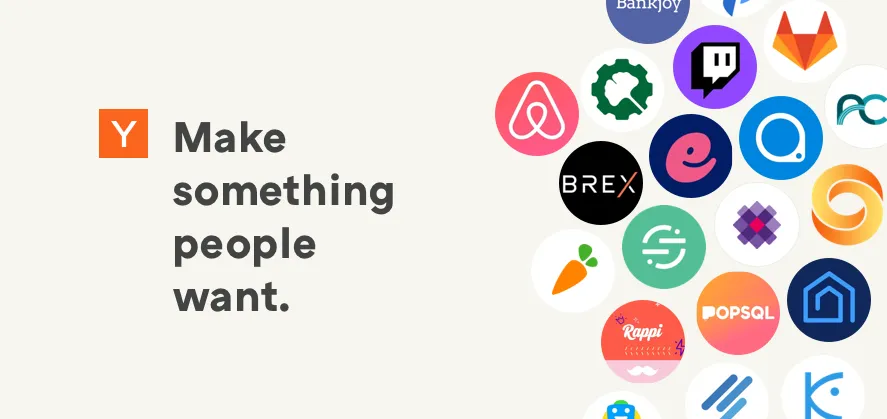Transitioning from Engineers to Founders -- How YC Shaped our journey

As some of you may know, Skyvern is actually our third attempt at building a startup, and we’ve made every mistake under the sun in our path to get to where we are. I’m happy to say that applying to YC was not one of them, as YC has given us 3 competitive edges we didn’t expect when we first got in. Want to know what they are? Scroll to the bottom to find out 🙂
So.. why did we even apply to YC in the first place?
Applying to YC was the easiest choice we ever made. We knew the odds of us getting in were slim, but it was a low-risk option to try and apply.
Our first startup idea, Ikonomos, was a product that helped software engineers onboard into companies. While we were building Ikonomos, we made all of the mistakes you could imagine
- We built a product without talking to any users (”I know what users want!”)
- Squabbled about tons of unnecessary features (”We need this to be ready for thousands of users”)
- Built a tarpit idea that definitely no one had ever thought of before
We didn’t realize we were approaching startups incorrectly until we started watching YC’s startup school videos, and YC’s how to start a startup stanford lecture series. We realized that startups could be approached with a pretty reasonable framework:
- Talk to users (and sell the product)
- Build the product that would achieve the sale
- Repeat (but don’t forget about the million nuances in between)
We also came across several blog posts Paul Graham wrote about starting a startup, which all help shine a light onto something we knew very little about: the mechanics of actually starting a company from nothing.
Amazing.. so you applied and got in right?
Wrong. We were actually rejected on our first try. We were fortunate enough to be invited for an interview, only to blunder every question that probed into any business-facing decision we had made about our startup.
We knew that we could build product and ship code, but we hadn’t been able to answer one fundamental question: “Why would someone want to use your product”. It was clear that we were approaching building a startup wrong, and it was time to recalibrate.
So what happened after that??
We spent a few months trying to sell Ikonomos to no avail — it turns out no one wanted to buy what we had built. After talking to over 100 engineering leaders, we realized something that we should have realized earlier: the biggest problem companies had with onboarding wasn’t their internal tooling (Notion is pretty good at this), but instead was an organizational problem.
We knew we had to pivot.
YC’s advice — founder market fit
We decided to back to the drawing board and started coming up with tons of new startup ideas. I spent a lot of time interviewing my friends, my neighbours, anyone I could talk to to understand what problems they were having.
It wasn’t until we watched Dalton’s video about pivoting where something clicked — perhaps we should build a framework for evaluating startup ideas and focus on problems we’ve had in the past!
This is how we landed on the idea we got into YC with: Wyvern — a machine learning platform to help marketplace optimize revenue through better product ranking.
Applying the second time
By this point, we were seasoned startup scrubs. We were talking to lots of people working in marketplaces to see if they would benefit from a specialized platform for ML, and we even managed to find our first customer! The only problem was.. we didn’t even have a product yet. All we had were a series of documents describing how the product would work if the company purchases it from us.
We were rapidly approaching the YC Application deadline, which required submitting a demo so we did the unthinkable — we wrote the application on the last day, recorded a demo video showing how our product would work if it existed, and submitted it
Getting the interview
In the month following our YC application, we were working around the clock to satisfy this customer and bring our product to life. We even managed to show enough progress to get this customer to sign a contract saying they are ready to pay for and use our product and will help us build it! A few days after this happened, we were invited for an interview.
For anyone that doesn’t know, YC’s interview process is pretty intense: It’s a 10 minute interview that decides your fate. YC gives you ~2-3 days notice before the actual interview.
Shortly after we got our invitation, I messaged every naturally skeptical person I know to set up mock interviewing sessions. I wanted to make sure I’ve thought though every flaw in our startup plan. Two gruelling days of practice later, I was convinced that our startup idea sucked, since there were a million things that could go wrong with it.
Second time’s the charm??
One of two things can happen after every YC interview:
- If you were rejected, they will notify you with an email which includes some feedback about what they were unsure about
- If you are accepted, they call you on the phone to invite you to join them
So.. after our interview, we were awaiting our fate. I remember the hours rolled by with no answer.. until suddenly we got an email: “Are you free for a follow-up call tomorrow”?
WHAT? This wasn’t one of the two scenarios they’ve outlined. What does this mean?? Is it going to be a second interview? Some live feedback? It turns out they wanted to ask us a few more follow-up questions, and invited us to join YC!!! YAY!!!
Didn’t you say there were surprising benefits or something?
Alright alright, I’ll get right to the point. One of the most common questions I get is “what are the benefits of applying to YC”?
You’ll notice that 90% of this post talked about life before YC, and how the public YC content helped us make a tremendous amount of progress. I just want to re-iterate that point: most of YC’s wisdom is actually open-source. All of the information you need to get started with a startup can be found in the links above (and in YC’s knowledge base). That being said...
There are 3 surprising benefits to YC:
- YC helps you create a peer-group of founders in the same position as you, which can be an incredibly motivating force
- Bookface, YC’s internal social forum, is a trove of high quality discourse, and acts as an implicit source of warm intros to other YC founders
- YC’s Launch pad is great for getting your product in front of lots of startup-minded people
And there are 2 things that ended up mattering less than I thought:
- Fundraising — it turns out that building a great product and generating revenue far outweigh YC’s brand when raising money
- YC’s Brand — while useful as social proof, it doesn’t replace the need to have a great product / solve a real problem

